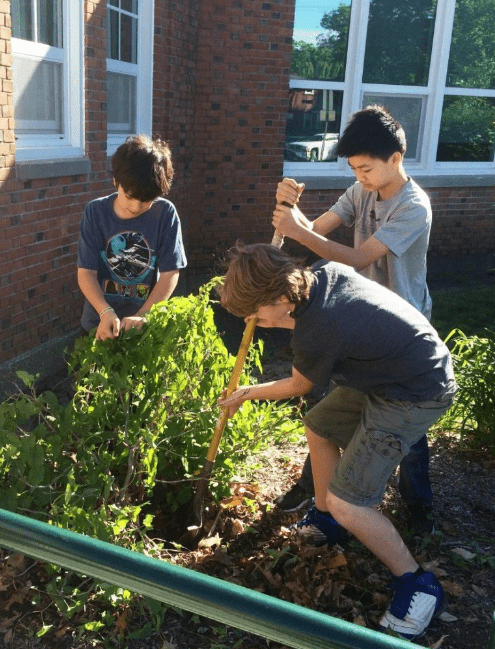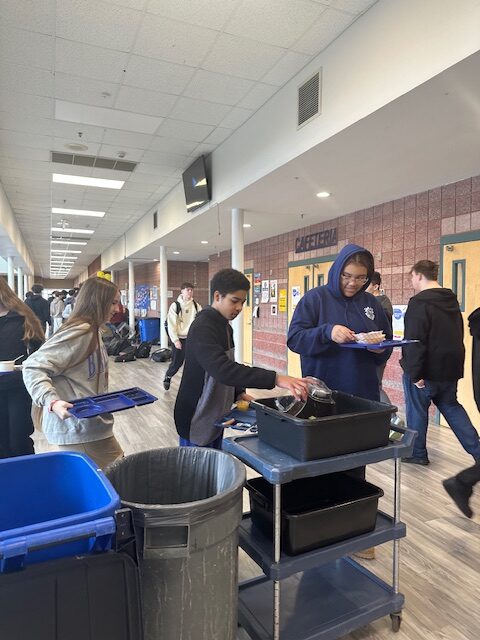Environmental Justice (EJ) is based on the principle that all people have a right to be protected from environmental hazards and to live in and enjoy a clean and healthful environment. EJ is the equal protection and meaningful involvement of all people with respect to the development, implementation, and enforcement of environmental laws, regulations, and policies and the equitable distribution of environmental benefits.
Mass.gov
The Green Team compiled the following list of videos, reading materials, and lesson plans regarding environmental justice. The aim of this list is to help educators incorporate EJ into their curriculum and introduce students to the topic of environmental justice and empower them to act.
Videos
Grist: YouTube video introducing environmental justice at the city, regional, and global levels.
EcoKnowMore: YouTube video defining the environmental justice movement, including the Flint, MI water crisis as an example and a hopeful call to action.
Zinn Education Project: Offers a list of films regarding climate justice, which can be filtered by grade level. Check out “Word Have Power” to see how a student in Connecticut rallied her community together to make a change.
Sinking Cities: Offers videos and support materials on how climate change is affecting the desirability of different neighborhoods and impacting diverse communities in both Miami and New York City.
Freedom to Breathe: A series on climate change and the racial, social, and economic challenges.
Tools
The U.S. Environmental Protection Agency (EPA) offers a variety of resources related to environmental justice.
- Environmental Justice Screening and Mapping Tool
- Environmental Justice Timeline
- Generate: An interactive game that allows students to explore energy choices and teaches the considerations and costs in deciding what type of energy generation to build.
Lesson Plans and Curricula
We Act: Offers two mini-lesson modules on ecological equity and environmental health. Each module has its own video, PowerPoint, and worksheet. Grades 4-12.
Earth Echo: Collection of environmental justice-focused videos, lesson plans, and other materials related to the environment. Grades 6-12.
InTeGrate: Offers an intro into environmental justice lesson plan. Grades 6-12.
Subject to Climate: Website offering a variety of lesson plans related to climate change.
- Green Spaces: A six-part unit discussing green space, environmental justice, and activism. Grades 3-5.
- Youth Climate Action: A lesson plan about what young people are doing to address climate change. Grades 9-12.
- Air Quality: A five-part unit discussing air quality. Grades 3-5.
- Cities, Trees & Inequality: A lesson plan on the distribution and density of trees in urban areas and how that relates to environmental justice. Grades 6-8.
- Redlining & Environmental Racism: A lesson plan that connects redlining with current issues of environmental and racial justice. Grades 6-8.
- Wangari Maathai & Deforestation: A lesson plan that introduces African environmentalist Wangari Maathai and links deforestation with the concepts of governance, poverty, and income opportunities for women in Kenya. Grades 6-8.
- A Look at Cancer Alley, Louisiana: A lesson plan where students explore an interactive map, learn about Cancer Alley and take concrete action to address environmental injustice. Grades 6-8.
- How Does Air Pollution Affect People Differently?: A lesson plan on findings that show people of color are exposed to more pollution from almost every type of pollution source and highlights the racial inequities associated particularly with air pollution. Grades 6-10.
EcoRise: Offers intro to environmental justice lessons for elementary, middle, and high school students. Grades K-12.
GroundWork USA: Offers Environmental Justice Literacy Curriculum. Grades 6-12.
A People’s Curriculum for the Earth: A book, for purchase, teaching climate change and the environmental crisis. Grades 6-12.
Mayah’s Lot: A graphic novel about environmental justice. Grades 6-12.
Climate Reality Project: An article that introduces students to the concept of climate migrants and refugees as an indirect effect of climate change. Grades 6-12.
Climate Reality Project: An article that details the communities that are disproportionately impacted by greenhouse gas pollution and climate change: frontline communities, and fence line communities. Grades 6-12.
Educators 4 Social Change: Offers resources on climate justice and international climate policy, such as lesson plans, articles, and informational sites. Grades 6-12.
Our Climate Our Future Resources: Offers activities, lesson plans, and webinars regarding environmental justice and climate litigation. Grades 6-12.
Project Learning Tree: Offers environmental justice resources and activities including community case studies and materials written in Spanish. Grades 6-8.
e-Inc Action: Resources to develop a scientific understanding of biomes and Earth systems to build skills for protecting the environment and living sustainably. Grades K-12.
Massachusetts-Specific Resources
Climate change education in Massachusetts Schools: A WBUR news article and audio recording on incorporating environmental education into Massachusetts’ schools.
Spring Forward: Youth-led initiative based in MA to educate students about climate justice and action. Grades 1-8.
Change is simple: An environmental educational non-profit that brings modern, relevant climate education to elementary schools in greater Boston.
Science for the People: The Western MA Chapter offered a two-part workshop in 2019 on integrating science and social justice workshops for K-8 educators and materials are available to access online.
Norman B. Leventhal Map & Education Center at the Boston Public Library: Offers professional development workshops for K-12 educators.



